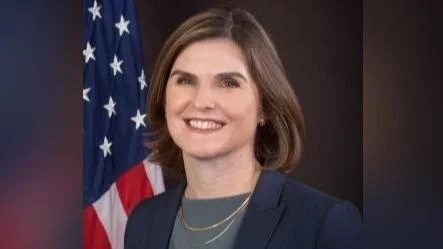As a novice master for the Jesuit province in Argentina, Father Jorge Bergoglio—known to the world as Pope Francis—was deeply engaged with the "spiritual exercises," a central practice in the Jesuit order. He would lead Jesuit novices through the 30-day process involving meditation, prayer, and contemplation to foster a closer relationship with God.
Carlos Aedo, executive director of the Office of Ignatian Spirituality for the USA East Province of the Society of Jesus, highlights the influence of these exercises on Pope Francis, who passed away on April 21 at the age of 88. "He is a man formed by the spiritual exercises," Aedo noted, adding that Pope Francis was aware of the experiences of encountering God both in personal prayer and in the world.
Pope Francis' connection with the Jesuit order, which was founded in the 1530s, was reflected in his papal practices. He committed a full week of Lent to spiritual exercises and encouraged Vatican Curia leaders to join. In a 2014 address, he reflected on these exercises saying, "He who lives the exercises in a genuine way experiences attraction, is fascinated by God, and returns renewed."
Aedo emphasized the Pope's teachings on discernment, pointing to a series of catecheses he gave in 2022. "Francis has reminded us that discernment is not just making the right choice or finding the best way to do something. Discernment means finding where the Spirit is leading us," Aedo explained.
The Jesuit spirituality of discernment and freedom was evident in Pope Francis’ actions and teachings. Bruce Morrill, a professor of theology, linked the Pope's emphasis on mercy, his devotion to Jesus' Sacred Heart, and practices of poverty to his Jesuit formation.
Father Morrill noted the significance of Pope Francis’ humble approach to the papacy, saying, "The world was taken and enchanted, taken in, by the symbolism of his immediate assumption of office — that he did not want to be treated like a royal figure."
Pope Francis' lifelong connection to the Jesuits was marked by his entry into the order in 1958, ordination as a priest in 1969, and his final profession in 1973. Reflecting on his Jesuit identity, he once described himself as "a sinner whom the Lord has looked upon."
Jesuit Father Allan Figueroa Deck attributed Pope Francis' openness to challenges to his Jesuit training. "One of the features of the Ignatian spiritual tradition is the cultivation of awareness," Deck said, pointing to the daily practice of reflection, known as the examen, as a key aspect of this tradition.
While some see Pope Francis' Jesuit worldview as progressive, Father Deck sees it as "a mixed thing" that seeks to balance tradition with new realities. He credited Pope Francis with revitalizing the church's synodal tradition and adapting it to contemporary contexts.
Father Deck praised Pope Francis for moving the church forward, despite resistance: "Francis will be remembered as having moved the church around a corner that it had to turn. Time will tell."
Maria Wiering reports for OSV News.
 Alerts Sign-up
Alerts Sign-up






